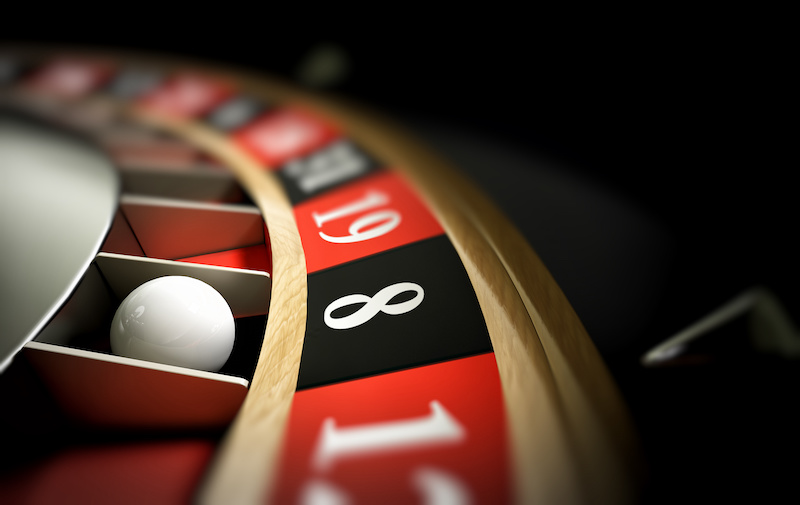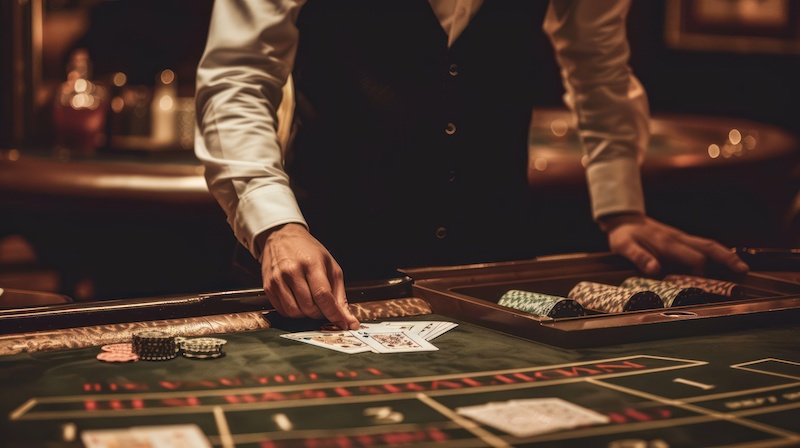Everyone loves to gamble. But the unfortunate fact of life is that our top casino games are meticulously designed to favor the house.
Unless you’re the kind of hyper-focused person who deploys an advantage playing strategy that allows gamblers to turn the tables, tilt the odds and out-house the house – those people and their techniques centerpiece my new book Advantage Players – you will essentially pay to play.
Despite that – and here is the good news -- in the short run, you can get lucky and leave the casino with your wallet bulging.
But, over time, casino-game mathematics are impossible to overcome. The house edge will catch up with you and take your hard-earned money. That said, there is a way to minimize the bleeding. You can choose to play the games that take the least as long as you approach them correctly.
Here, then, is a plan for enjoying the high-flying risk/reward of gambling while tamping down the risk part.
Play these games, follow simple strategies, and extend your longevity at the tables.
IF YOU DON’T COUNT CARDS, DO COUNT YOUR MONEY
Card counting at blackjack provides players with a tiny edge over the house, but the volatility is serious, there is a small learning curve, and you tend to lose the most when you get unlucky during the best situations – i.e., the times when you are betting peak amounts because the count has gone through the roof.
A simpler approach for those who aim to hit 21 – at a game that is rooted in the 17th century and blew up 400 years later when it became the most popular offering on the casino floor (the name likely stems from a bonus that was once paid to players who had a black-suited Jack and the ace of spades) – is to play perfect basic strategy and to stick with it through thick and thin.
You can sit at the table with a basic strategy card, which will tell you to always split 8s (even against a dealer’s 10) and to double down with 11 against everything except the dealer’s ace. Follow those blackjack strategy rules as if they are law.
This system was created in the 1950s by a quartet of army officers, known as the Four Horsemen. They used military-grade calculators to figure out all of blackjack’s mathematically optimal plays. It worked then and works now.
Stick with perfect basic strategy and the house edge will land somewhere between 0.5 and 2%, depending on the rules (most critically, find games that pay 3-2 on blackjacks). This means that for every $100 you bet, you give up something between 50 cents and $2.

TAKE THE WHEEL FOR A SPIN – BUT DO IT IN EUROPE
For casual gambling, especially after a few glasses of wine, roulette is a prime option.
Roulette, which was the brainchild of a French physicist in the 1700s (he was trying to invent a perpetual motion machine and wound up with a game that has snagged cameos in moves such as Oceans Thirteen, Batman, and Indecent Proposal), offers opportunities to blow off gambling steam without doing a whole lot of strategizing.
You put your money on a number (with 38 choices, including zero and double zero in the United States) or else go for black or red and hope for the best. It’s simple and fun. Bet on anything but the first five numbers as a group in the United States, and the house edge is 5.26%. If you can’t help but avoid the first five (which you should shun), you’ll be giving up 7.89%.
Play the game in Europe, or just about anywhere in the world outside of America, and the house edge (thanks to the loss of double zero, which yields 37 possible numbers instead of 38) dips to 2.7%.
Take roulette for a spin in the U.S. and you’ll be giving up a little more than $5 for every $100 wagered. Do it in Europe or beyond, however, and each $100 spin will cost a much more palatable $2.70. Sometimes, as is the case here, the European way is the better way. Take that into account when determining your own roulette strategy.
ROLL THE DICE AND DO IT WISELY
It can be difficult to walk through a casino and not be hijacked by a craps game in full force.
Stemming from a 12th century innovation called Hazard, craps enjoyed a stint as a favorite of back-alley gamblers who only required two cubes and a sidewalk to get things going. These days, the modern casino-version draws crowds and gives off so much energy that it can feel as if the table will levitate.
You’ll see people shouting out all kinds of wagers – boxcars (two 6s), the field (a single-roll bet that the dice will total 2 -4 or 9 – 12), and hard-way (betting that the dice will drop as a chosen number with two matching numbers – like a pair of 3s for a total of 6) – but if you want the best bet at the table, pay those gamblers no mind.
The sharpest craps wager you can make is a pass-line bet – wagering that a point will be reached – followed up with odds on that number. If, say, the point is 6, then take odds on the six, which means you lay down additional chips on the point being made. Miraculously, the odds bet pays at the actual odds of rolling that number – no house edge.
Wagers don’t get any sweeter than that in a casino and taking odds should be part of any craps strategy.
The pass-line bet gives the house a reasonable edge of 1.41%. So, with the odds bet thrown in, you are getting as fair a gamble as you can hope for in a casino. Figure that a $100 pass-line bet and 4x odds for a total of $500 will cost you a bargain basement price of $1.41. Just remember to hold onto your chips when all those longer-odds bets beckon.

BE A BACCARAT MACHINE!
Kelly Sun, who famously engineered a multi-million-dollar baccarat spree with the help of poker great Phil Ivey, employed a technique called edge sorting to beat the game big time. Along the way, she was given the nickname Baccarat Machine.
But you don’t need to edge sort to be a baccarat machine in your own right.
Though baccarat, which dates to 15th century Italy (its name supposedly derives from the Italian word bacca, which means zero, and that is the value of face cards in the game), comes off as one of the most elegant gambits in the casino, it is also one of the cheapest to play.
Despite a black-tied James Bond anteing up in movies such as Dr. No, the truth of the matter is that if you bet banker the casino has a totally manageable 1.06% advantage. This makes baccarat affordable even for those of us who are not globe-trotting spies.
Pay a little more than $1 per $100 bet to the casino and you won’t need to stint on the drying cleaning of your tuxedo.


